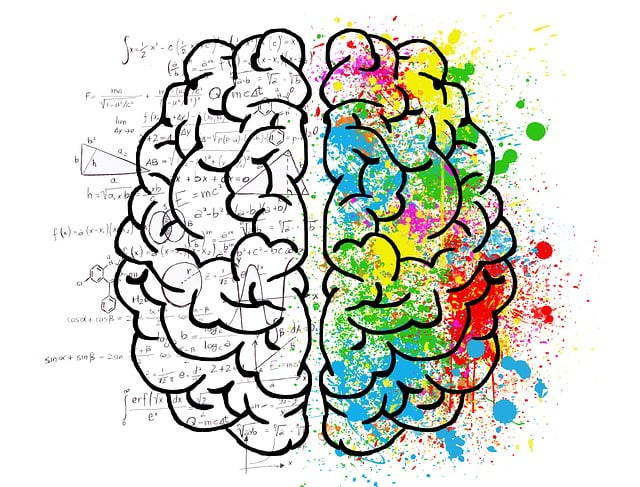Are you a writer who has stared at a blank page for what feels like an eternity, desperately trying to conjure up the perfect words, only to be met with frustration? If so, you’re no stranger to the dreaded writer’s block. It’s a creative barrier that casts a shadow on our motivation and threatens to derail our progress. But fear not! In this article, we will explore effective strategies to overcome writer’s block, helping you regain your inspiration and achieve success in your writing endeavors. From simple techniques to ignite your imagination to tips on maintaining a consistent writing routine, we’ve got you covered. So, grab a cup of coffee, sit back, and let’s conquer writer’s block together!
Contents
- Causes of Writer’s Block: Understanding the Key Culprits Behind the Creative Stagnation
- Exploring the Psychological Factors: How Thoughts and Emotions Affect Writing Productivity
- Breaking the Cycle: Effective Strategies to Overcome Writer’s Block
- Harnessing the Power of Routine: Establishing Healthy Writing Habits
- Unlocking Your Creativity: Strategies to Inspire and Generate New Ideas
- Utilizing Freewriting Techniques: Unleashing the Flow of Words
- Exploring the Power of Freewriting
- Embracing Imperfection: The Role of Editing and Revision in Overcoming Writer’s Block
- Frequently Asked Questions
- To Conclude
Causes of Writer’s Block: Understanding the Key Culprits Behind the Creative Stagnation
Writer’s block can be a frustrating and mentally draining experience that hinders even the most seasoned writers. Unraveling the causes behind this creative stagnation is crucial to overcoming it and getting those words flowing again. Here are some of the key culprits that commonly contribute to writer’s block:
- Fear and self-doubt: One of the primary causes of writer’s block is the fear of not being good enough or producing subpar work. Self-doubt can creep into the mind, making it difficult to start or continue writing. This fear often stems from the pressure to meet high expectations or concerns about negative feedback from others.
- Lack of inspiration: Another common cause is a lack of inspiration. When the creative well runs dry, it can be challenging to find the motivation to put pen to paper or fingers to keyboard. Without fresh ideas or a spark of excitement, the writing process can feel tedious and unfulfilling.
- Perfectionism: Striving for perfection can be a double-edged sword. While wanting to produce exceptional work is commendable, getting trapped in the pursuit of flawlessness can lead to writer’s block. The fear of making mistakes or not meeting one’s high standards can paralyze the creative process.
It is essential for writers to recognize these key culprits behind writer’s block and develop strategies to overcome them. By addressing self-doubt, seeking inspiration, and embracing imperfection, writers can break through the barriers preventing them from unleashing their full creative potential.
Exploring the Psychological Factors: How Thoughts and Emotions Affect Writing Productivity
When it comes to writing productivity, the impact of our thoughts and emotions should not be underestimated. The psychological factors that influence our ability to produce quality content are multifaceted and complex. Understanding and harnessing these factors can significantly enhance our writing productivity and overall output.
Thoughts play a crucial role in shaping our writing productivity. Negative thoughts, such as self-doubt or fear of failure, can hinder our creative flow and result in writer’s block. On the other hand, positive thoughts, like believing in our abilities and enjoying the writing process, can boost our motivation and drive. It’s important to cultivate a positive mindset and challenge any self-imposed limitations or negative self-perceptions that may hinder our progress.
- Emotional state: Our emotions can directly impact our writing productivity. When we are feeling stressed, anxious, or overwhelmed, it becomes harder to focus and generate ideas. On the contrary, being in a positive emotional state, such as feeling inspired or excited, can fuel our creativity and help us produce engaging content.
- Self-awareness: Developing self-awareness and identifying our emotional patterns can contribute to better writing productivity. By recognizing when our emotions are affecting our work, we can take necessary steps to manage and redirect them. This may involve incorporating stress-relief techniques or finding sources of inspiration that help us maintain a positive mindset.
- External influences: Our thoughts and emotions can also be influenced by external factors such as the writing environment or feedback from others. Creating a conducive writing space and seeking constructive feedback can contribute to a more positive and productive mindset.
By acknowledging the significance of our psychological factors in writing productivity and actively working towards a positive mindset, we can unlock our full potential as writers. Embracing our thoughts and emotions, and understanding how they impact our work, empowers us to overcome obstacles, enhance our output, and ultimately, create content that resonates with our audience.
Breaking the Cycle: Effective Strategies to Overcome Writer’s Block
Are you frustrated by that blank screen staring back at you, devoid of any inspiration? You’re not alone. Writer’s block can feel like an impenetrable obstacle, but fear not! We’ve compiled a list of effective strategies to help you break free from this creativity-crippling cycle.
Dabble in Freewriting: Sometimes, the key to unlocking your creativity lies in letting your thoughts flow freely without any restrictions. Set aside dedicated time to freewrite, allowing your ideas to spill onto the page without judgment or overthinking. Embrace the chaos and see where it takes you – you might be pleasantly surprised by the hidden gems you discover.
Switch Up Your Environment: A change of scenery can work wonders for breaking through writer’s block. Instead of staring at the same four walls, venture outdoors or seek out a cozy café. The new sights, sounds, and smells can stimulate your senses and reignite your creativity. Alternatively, rearranging your workspace or adding personal touches can create a fresh atmosphere that sparks inspiration.
Harnessing the Power of Routine: Establishing Healthy Writing Habits
Developing a routine is essential for any writer aiming to enhance productivity and maintain consistency. By establishing healthy writing habits, you can unlock the full potential of your creativity and create a more rewarding writing experience. Here are some valuable tips to help you harness the power of routine:
- Create a Dedicated Writing Space: Designate a specific area in your home or workplace solely for writing. This not only helps you mentally transition into a focused writing mindset but also minimizes distractions, allowing your thoughts to flow uninterrupted.
- Set Realistic Goals: Break down your writing tasks into manageable goals. Whether it’s completing a certain word count or finishing a specific chapter, setting realistic targets keeps you motivated and enables you to track your progress. Remember, consistency is key.
- Establish a Writing Schedule: Determine regular writing times that align with your energy levels and personal preferences. Whether it’s early morning or late at night, having a predictable schedule helps you condition your mind to be ready for writing during those designated periods.
By incorporating these strategies into your writing routine, you can gradually develop healthy habits that boost your creativity, improve your writing skills, and ultimately, allow you to produce high-quality work consistently
Remember, every writer is different, so don’t be afraid to experiment and find what routine works best for you. With dedication and perseverance, you’ll find that establishing healthy writing habits can propel your writing journey to new heights.
Unlocking Your Creativity: Strategies to Inspire and Generate New Ideas
Embrace Curiosity
One of the most effective strategies for unlocking your creativity is to cultivate curiosity. Tapping into your natural sense of wonder opens up a world of possibilities and inspires new ideas. Take the time to explore the things that pique your interest, whether it’s reading books on diverse subjects, watching thought-provoking documentaries, or engaging in stimulating conversations with people from different backgrounds. These experiences will broaden your perspective and encourage you to think outside the box, ultimately leading to fresh and innovative ideas.
Step Outside Your Comfort Zone
Pushing yourself outside of your comfort zone is crucial when it comes to stimulating your creativity. Seek out unfamiliar experiences and challenges that stretch your limits. Whether it’s learning a new skill, travelling to a new destination, or attempting something you never thought you could do, these actions prompt your brain to adapt and think in new ways. By embracing discomfort, you remove the barriers that hinder your creative thinking and allow yourself to explore uncharted territories. Remember, great ideas often arise from moments of discomfort and uncertainty.
- Become an avid reader; explore different genres and authors.
- Engage in creative hobbies like painting, writing, or playing a musical instrument.
- Practice mindfulness and meditation to quiet inner noise and enhance focus.
- Surround yourself with diverse and inspiring individuals who challenge your perspectives.
- Give yourself permission to make mistakes and learn from them.
- Try brainstorming techniques like mind mapping or listing ideas without judgment.
Unlocking your creativity is a journey of self-discovery and experimentation. Embracing curiosity, stepping outside your comfort zone, and utilizing various strategies will help you tap into your inner potential and unlock a wealth of new and exciting ideas.
Utilizing Freewriting Techniques: Unleashing the Flow of Words
Exploring the Power of Freewriting
In the realm of writing, freewriting is a technique that can be incredibly effective for unleashing creativity and overcoming writer’s block. By allowing your thoughts to flow freely onto paper or screen, you create a space for your ideas to take shape and surprise you. Embracing this technique can open doors to new realms of imagination, enabling you to tap into your subconscious and discover hidden depths of inspiration.
Breaking Free from Mental Constraints
One of the reasons freewriting is so powerful is because it bypasses the self-critical mind. The technique encourages you to write without judgment or inhibition, enabling the words to flow effortlessly. When we let go of our inner critic, we create an environment where creativity flourishes naturally. This mental liberation allows ideas to emerge organically, leading to unexpected connections and innovative concepts. Embrace the freedom that freewriting offers, and watch your writing reach new heights.
Unlocking Your Creativity
Freewriting allows you to tap into your subconscious mind and access ideas that may have otherwise remained hidden. By giving yourself the freedom to write without boundaries or expectations, you uncover a wellspring of creativity within. It is in these moments of unfiltered expression that unique perspectives and fresh ideas arise. Freewriting sparks the imagination, ignites the senses, and breathes life into your writing.
- Enhance brainstorming: Freewriting is an exceptional tool for brainstorming, helping to generate numerous ideas that can be refined later.
- Overcome writer’s block: When facing a blank page, freewriting can serve as a warm-up exercise, helping to overcome mental blocks and jumpstart the writing process.
- Rediscover your voice: By allowing thoughts and emotions to flow freely, freewriting enables you to reconnect with your unique writing voice.
Embracing Imperfection: The Role of Editing and Revision in Overcoming Writer’s Block
Editing and revision are essential steps in the writing process, especially when faced with the dreaded writer’s block. Many writers find themselves paralyzed by the idea of producing a flawless first draft, which ultimately hinders their progress. However, embracing imperfection and understanding the role of editing and revision can be the key to overcoming this creative barrier.
Here are some valuable insights on how editing and revision can help you conquer writer’s block:
- Unlocking creativity: The act of editing and revising allows you to freely express your thoughts without the pressure of perfection. By embracing imperfection, you give yourself permission to explore ideas, make mistakes, and take risks. This new mindset not only expands your creativity but also releases the burden of writer’s block.
- Finding clarity and coherence: Writer’s block often stems from a lack of clarity or fear of incoherence. Thankfully, editing and revision provide an opportunity to refine your ideas, organize your thoughts, and ensure your message flows smoothly. Through revisiting your work, you can identify gaps, sharpen your arguments, and improve the overall structure, ultimately transforming your blocked writing into a clear and coherent piece.
By embracing the notion that editing and revision are not adversaries but allies, you can push past writer’s block and elevate the quality of your writing. Embrace imperfection, unlock your creativity, and bring clarity to your work to emerge victorious on your writing journey.
Frequently Asked Questions
Q: What is writer’s block and why does it happen?
A: Writer’s block refers to a temporary inability to generate ideas or start writing creatively. It can happen due to various reasons such as stress, self-doubt, lack of inspiration, or feeling overwhelmed with a writing task.
Q: How can I identify if I’m experiencing writer’s block?
A: Common signs of writer’s block include prolonged periods of staring at a blank page, feeling frustrated or anxious about writing, constantly doubting the quality of your work, or struggling to come up with new ideas or words.
Q: What are some effective strategies for overcoming writer’s block?
A: – Take a break: Step away from your writing and engage in activities that relax you, like taking a walk, practicing mindfulness, or listening to music. This will help clear your mind and reduce stress.
– Set realistic goals: Break down your writing task into smaller, manageable steps. Setting achievable targets can prevent overwhelming feelings and boost motivation.
– Freewriting: Start writing without worrying about making it perfect. Just let your thoughts flow onto the page, even if they seem messy or disconnected. This helps to spark ideas and get your creativity flowing.
– Try different prompts or exercises: Experiment with writing prompts, exercises, or even changing your writing environment to stimulate new ideas and perspectives.
– Talk it out or seek feedback: Engaging in discussions about your writing with others, such as friends, colleagues, or writing groups, can offer fresh insights and help overcome mental blocks.
– Rewrite or edit previous work: Returning to unfinished or old writing can help reinvigorate your creativity and inspire new ideas.
– Disconnect from distractions: Eliminate potential distractions, such as social media or your phone, by setting specific writing timeframes where you focus solely on your work.
Q: How can I cultivate creativity and find inspiration when facing writer’s block?
A: Exploring different creative outlets, like reading books, visiting art galleries, or listening to podcasts, can provide inspiration and expose you to new ideas. Additionally, keeping a journal, jotting down spontaneous thoughts, or brainstorming can help capture fleeting moments of inspiration for later use.
Q: Is it possible to prevent writer’s block altogether?
A: While it may not be entirely avoidable, there are preventive measures you can take. Regularly practicing writing and maintaining a consistent writing routine can reduce the likelihood of writer’s block. Additionally, staying organized, managing stress levels, and finding reliable sources of motivation can also help prevent or minimize the impact of writer’s block.
Q: How long does writer’s block typically last?
A: The duration of writer’s block varies from person to person. Some may overcome it within a few days, while others may struggle for weeks or even months. It’s important to remember that writer’s block is temporary and can be overcome with the right strategies and mindset.
Q: Are there any famous authors who have dealt with writer’s block?
A: Yes, even celebrated authors like F. Scott Fitzgerald, Harper Lee, and Ernest Hemingway have experienced writer’s block at some point in their careers. It is a common challenge faced by writers, regardless of their level of expertise.
Q: What if I follow these strategies and still can’t overcome writer’s block?
A: If you find that your writer’s block persists despite trying various strategies, it might be helpful to seek guidance from a writing coach, therapist, or counselor who specializes in creative blocks. They can provide personalized advice and offer techniques tailored to your specific situation.
To Conclude
In conclusion, by implementing the strategies mentioned in this article, you can overcome writer’s block and achieve success in your writing endeavors. Happy writing!






